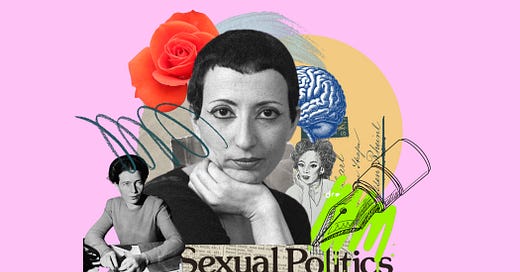The other day, during one of my one-to-one meetings with someone I am currently mentoring, I was explaining the origins of the name of my Substack, White Ink.
It occurred to me that I probably should remind some of you who have subscribed, or are following me, because otherwise it might not make sense.
The inspiration for White Ink was a quote from French feminist writer, Hélène Cixous, who, in her essay The Laugh of Medusa, spoke of women writing with their breast milk, or the breast milk of their mothers — their white ink, so to speak.
This also made sense to me as a ghostwriter, and so, White Ink was born.
What Cixous was trying to impress on people was the importance of female storytelling, of female voice, of passing down these stories, our experiences, so that others might relate to them. This is the vein that runs through my Substack, empowering female stories through discussions on writing craft, empowerin…




